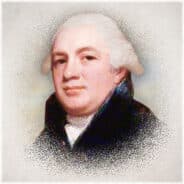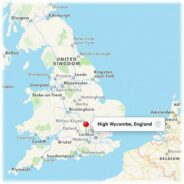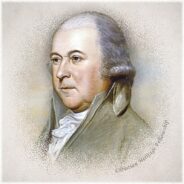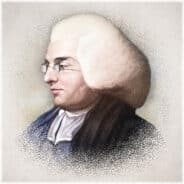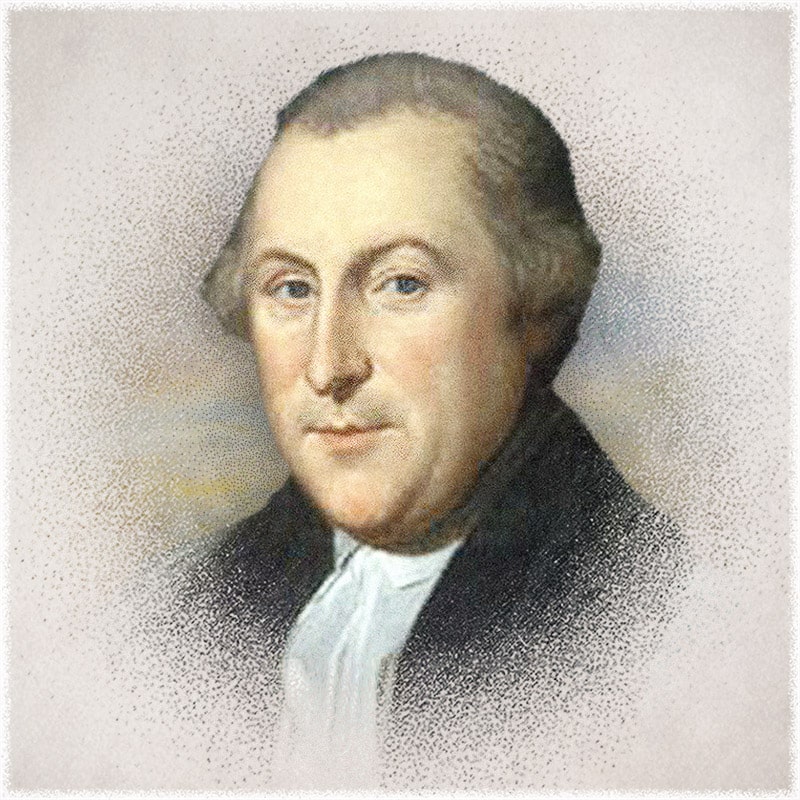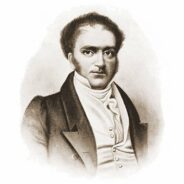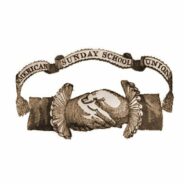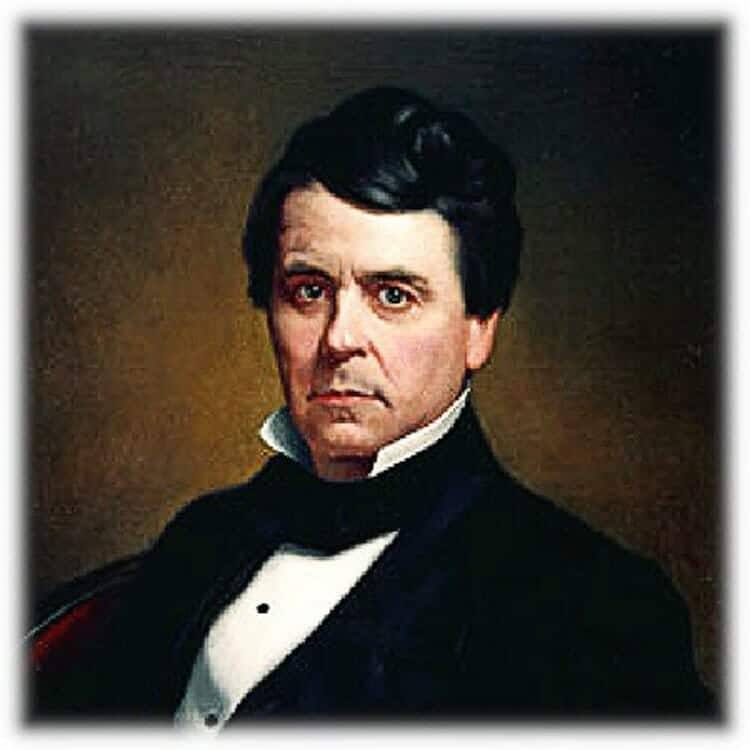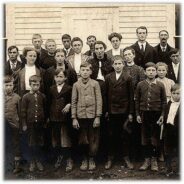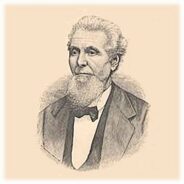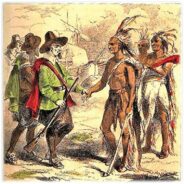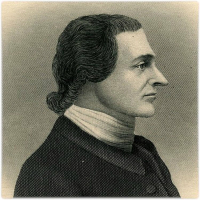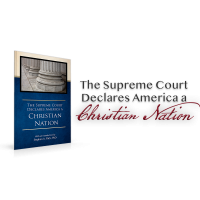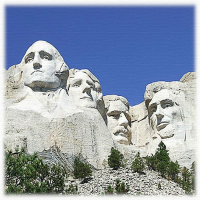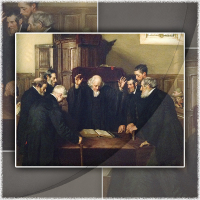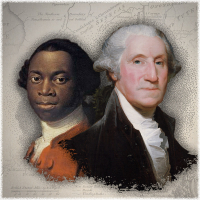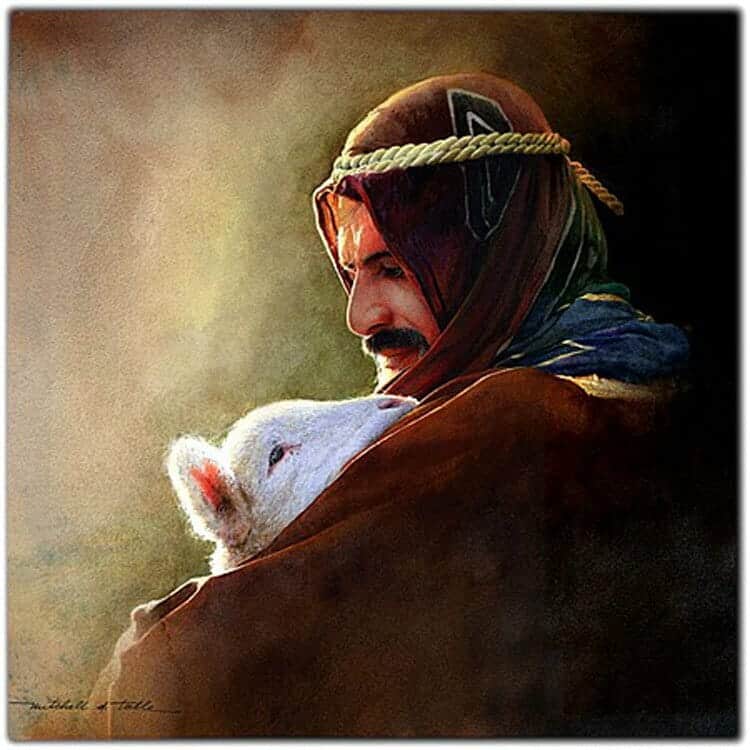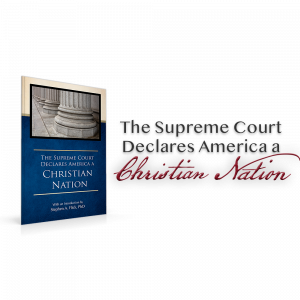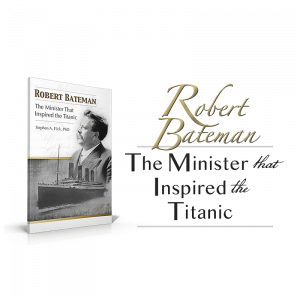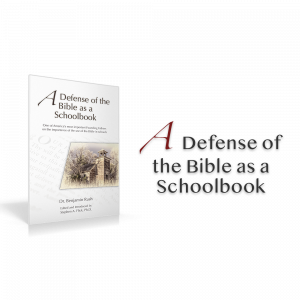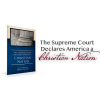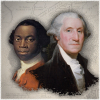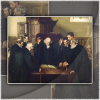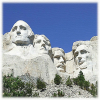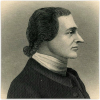Sunday School Preserves American Republic
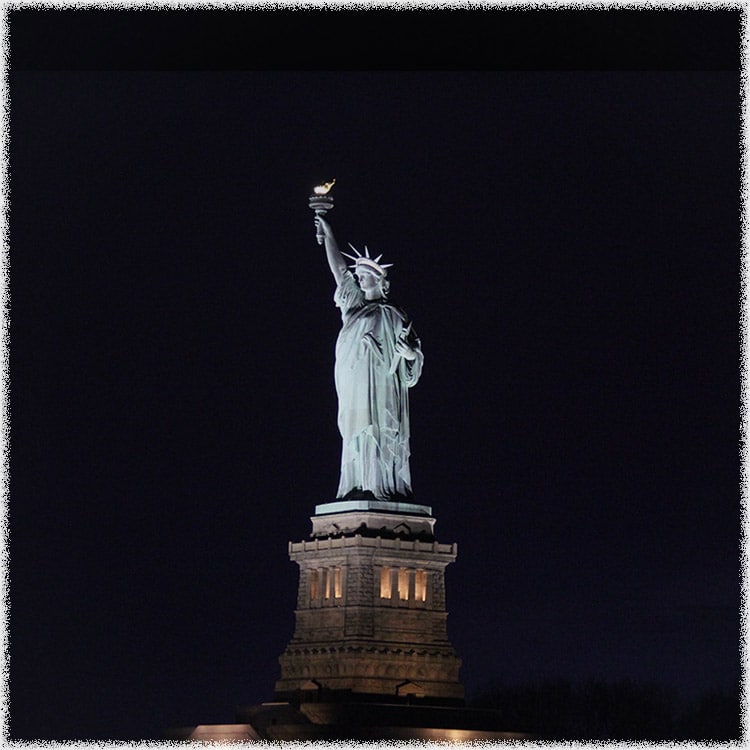
Following the American Revolution, spiritual and moral life in the new nation plummeted. Pastors or lay leaders of local churches often led the Minute Men and were on the frontline of the American Revolution. Given the fact that American Christian leaders were compelled by their biblical convictions to oppose King George III in the Revolution, the Church in America experienced a vacuum in leadership following the war. Because so many Christian leaders had been killed in the Revolution, local churches were often left to leaders who had little or no spiritual qualifications. French soldiers who came to fight for the American cause often brought with them the seeds of atheism, agnosticism, and various influences of infidelity that had been sown in France through Voltaire, Rousseau, and the Encyclopedists. The era following the Revolution was one of the darkest moments in American history. Recognizing the spiritual demise that was all around them, Christians became in earnest about the state of the nation, and as a result of renewed spiritual interest, America experienced the Second Great Awakening. One of the efforts that helped turn America around was known as the American Sunday School Union . Its contribution to the spiritual life of America is briefly recounted below.Sunday School
ContentsSunday School
The Methodists Start Sunday School
While various efforts to catechize and provide biblical instruction to Christians throughout the history of the Church have been recorded in the pages of Church history, credit for the rise and use of the "Sunday school" belongs to Methodism.[1] Though generally credit is given to Anglican layman, Robert Raikes for beginning the Sunday school, proper credit goes to a Methodist by the name of Hannah Ball (1734-1792) for conceiving and beginning this important spiritual institution. In the British Isles and early America, the Methodists—like most Christians—were deeply concerned about proper Christian education. Hannah Ball began her Sunday school in High Wycombe, England in 1769, and upon her death, the administration of her school fell upon her sister, Anne.
Not until July 1780 in Gloucester, England did Robert Raikes begin his well-known Sunday schools, in the home of Mrs. Meredith. In 1784, Raikes penned a letter that was published in the Methodist periodical, Arminian Magazine, and very likely was influential in the beginning of Sunday schools among the Methodists in America. By 1786, Methodist American bishop, Francis Asbury, began to use Sunday schools within his Methodist churches.[2] But the Methodists in fledgling America did not remain isolated in their use of the Sunday school. By the early nineteenth century, Methodism joined other evangelical Christian churches in an attempt to evangelize and educate America through the use of the Sunday school.
Christianity Births the American Republic
John Adams understood what many in America today adamantly seek to deny—that the principles of Christianity were responsible for the birth of America. Adams was one of the most influential Founding Fathers, providing a leading voice in the formation of the Declaration of Independence and contributing important thoughts on the nature of government with his pamphlet, "Thoughts on Government"—which was particularly influential in the formation of state constitutions. On June 28, 1813, John Adams penned a letter to his friend Thomas Jefferson. In it, Mr. Adams clearly identified the influential role that the Christian faith played in the formation of America as an independent nation:
The general principles on which the fathers achieved independence were the only principles in which that beautiful assembly of young men could unite, and these principles only could be intended by them in their address, or by me in my answer. And what were these general principles? I answer, the general principles of Christianity, in which all those sects were united, and the general principles of English and American liberty, in which all those young men united, and which had united all parties in America, in majorities sufficient to assert and maintain her independence. Now I will avow, that I then believed and now believe that those general principles of Christianity are as eternal and immutable as the existence and attributes of God; and that those principles of liberty are as unalterable as human nature and our terrestrial, mundane system.[3]
John Adams and the other Founding Fathers were well aware that the American republic had been birthed by the principles of Christianity, and if the republic was to be enjoyed by succeeding generations of Americans, the Christian principles that established the nation must be given from one generation to the next. How the Christian principles that established America were to be passed on to succeeding generations of Americans soon became a matter of considerable effort by many prominent Americans.
Congress' Chaplain and Sunday School
The first chaplain of the American Continental Congress was Rev. Jacob Duche, the rector of the Anglican, Christ Church,[4] appointed by Congress in September, 1774.[5] Three years later, in September 1777, the British occupied Philadelphia, and Rev. Duche was arrested, and upon his release from British custody, wrote an impassioned letter to General George Washington, pleading with him to lay down his arms and negotiate a peace with the British. For this, Duche was convicted of high treason by the State of Pennsylvania and fled to England, not returning to America until 1792.
Congress replaced Jacob Duche as chaplain with two other ministers. On October 1, 1777, the Continental Congress appointed two chaplains, William White (Duche's successor at Christ Church) and George Duffield, pastor of the Third Presbyterian Church of Philadelphia. It should be noted that from the very beginning of America's "federal" government, Congress began to practice the correct interpretation of "separation of church and state." That is, no single denomination of orthodox Christians would be permitted to dominate the life of the federal government, though orthodox Christianity would be allowed to influence the moral and legal life of the nation. However, states were free to decide concerning whether they would have state churches—without federal intervention—in matters related to religion.[6]
The year after Congress convened for the first time under the new Constitution (1789), a group of prominent Christians convened a meeting that helped to ensure that the Christian principles that birthed America would be given to succeeding generations of Americans. On December 19, 1790, Rev. William White D.D., Benjamin Rush M.D. (signer of the Declaration of Independence),[7] Matthew Carey, Thomas P. Cope, and other prominent Christians gathered in Philadelphia, Pennsylvania "for the purpose of taking into consideration the establishment of Sunday Schools in this city."[8] The day after Christmas, on December 26, the gathering adjourned following the adoption of a constitution for their newly formed society. Less than two weeks later, on January 11, 1791, they reconvened again to continue their efforts. Officers were elected and the organization of the society was finalized. The name given to their society, though lengthy, was descriptive of their efforts: "Society for the Institution and Support of First-day or Sunday Schools in the City of Philadelphia,"[9] and was composed of different evangelical Christian denominations. Rev. Dr. White was selected as the first president of the society, and through the dedicated efforts of many committed believers, the society began to flourish. Published reports of 1810, 1816, and 1826 disclosed commendable progress in the effort of evangelizing the youth of Philadelphia. The Sunday School Society of Philadelphia "was the first Sunday School society organized in the country for missionary work."[10]
Other Sunday School Societies Organize
Through the influence of the Philadelphia Sunday school society, other similar societies were initiated in other states. One of the most prominent individuals to catch a vision for the work of the Sunday school movement was Eleazar Lord (September 9, 1788 - June 3, 1871), an American author, educator, the founder of the Manhattan Insurance Company, and the first president of the Erie Railroad. Having studied at Princeton College and Andover Seminary, Eleazar acquired an interest in Christian missions. In 1813, he published a work that reflected this interest: A History of the Principal Protestant Missions to the Heathen (Boston). Though he never became a foreign missionary, Eleazar came to regard the Sunday school movement as a mission endeavor, spending a significant portion of the year 1815 in Philadelphia, learning from the Sunday School Society there. Returning to New York, Eleazar helped to organize "The New York Sunday School Union" on February 26, 1816.[11] That same year, he was a member of the convention that organized the American Bible Society in New York City. The New York Sunday School Union quickly distinguished itself, assuming a prominent role in the developments that followed from the Sunday school movement:
To this New York society more than to any other, it is said, we are indebted for the promulgation of the wide-spread union principle, since the first suggestion of a national Sunday School Union came from this society.[12]
National Sunday School Union Created
Though the idea of a national Sunday school union appears to have originated with representatives from New York, the suggestion was acted upon in Philadelphia. In 1817, the Philadelphia Sunday school society organized an adult version of the Sunday school, named the "Philadelphia Sunday and Adult School Union," at which time an annual meeting was also established, to which other state societies sent representatives. In addition to the New York Sunday school society, other societies had also been formed. Representatives from other Sunday school societies were present at the seventh annual meeting at Philadelphia when plans were laid to unite the various societies and unions into a national organization. A constitution was developed, and the following resolution was placed before the assembled representatives:
Whereas, The great and progressing increase of Sabbath Schools throughout our country, exerting a powerful and most beneficial influence over all classes of society, calls loudly for union and organized action; and the prosperity of this institution clearly shows the efficiency of such union; and Whereas, the Constitution of the American Sunday School Union has been approved by the Sunday and Adult School Union, of Philadelphia, and other unions; therefore, Resolved, That the Constitution of the American Sunday School Union be adopted.[13]
With the adoption of the resolution and constitution, the various Sunday school societies of each state were united into the American Sunday School Union (ASSU).
Prominent Leaders Rally to Cause
Being so far removed from this momentous effort, those of us living in the twenty-first century can scarcely begin to understand the impact that the American Sunday School Union exercised upon the life of young America. Prominent national figures caught the Christian vision that was cast by the Union and were quickly persuaded to lend their support to an effort that would perpetuate the American republic with Christian morality. Among the most distinguished to serve were long-time vice president, Pennsylvania Governor James Pollock who, as director of the United States Mint in Philadelphia, first inscribed American currency with "In God We Trust"; Supreme Court Justice, Bushrod Washington, nephew of George Washington; Supreme Court Chief Justice, John Marshall; author of our national anthem, Francis Scott Key; American statesman, Daniel Webster; and later, D. L. Moody, the well-known evangelist; John Adams, relative of both early American presidents and organizer of more than 320 Sunday schools; Laura Ingalls Wilder, author of the Little House on the Prairie novel series; and others concerned about Christianizing the youth of America and the perpetuation of the American republic—to say nothing of those distinguished Americans already mentioned.
Success of the American Sunday School Union
One of the greatest influences the American Sunday School Union exercised over America was the distribution of Christian literature. Juvenile religious literature was a priority for the ASSU. Typical of this massive effort was the book, Life of Washington by Anna C. Reed (see below), which unfolded the Christian life of George Washington. For more than 150 years, the ASSU printed and distributed books, hymnals, tracts, and tickets to reward Scripture memorization. Their "Ten-Dollar Libraries" was an affordable set of 100 books that provided teaching materials for Sunday schools and often were the only lending library of many communities.
The first paid missionary was hired in 1821 and an aggressive development program undertaken throughout the remainder of the nineteenth century. In 1888, William Levering wrote,
During the past 64 years, the union has organized an average of 1,280 new Sunday Schools a year…[14]
Before 1890, the International Secretary reported 8,034,478 scholars in attendance in all the Sunday schools in the United States, but the chairman of the Executive Committee stated that a more accurate number would be closer to 8,436,201.[15] Using the 1880 census report of 50,189,209, statistics indicate that nearly six percent of the population of the United States was attending Sunday schools sponsored by the ASSU.
In 1830, the Sunday School Union embarked upon a vision to start a Sunday school in every town in the Mississippi Valley. An amazing story is told about one of the missionaries who was responsible for helping to achieve that vision. "Stuttering Stephen" Paxson had overcome the double handicaps of a stammer and a limp to become a successful hatter in Winchester, Illinois. But Stephen was also the favorite fiddler for the Saturday night square dance.
One Sunday morning, Mary, Stephen's daughter, who had been told by her Sunday school teacher that she would get a star if she brought a new scholar to Sunday school, decided that the new student would be her father. The tired fiddler granted his daughter's request and accompanied her to Sunday school. He found himself seated in a class of boys who were helping him to pronounce the hard words in their Bible lesson. It was not long before Paxson's fiddle was a welcomed part of the Sunday school exercises. God placed his finger upon Paxson's heart, called him to salvation in Christ, and laid upon his heart the vision to evangelize the Mississippi Valley. He moved his family into the Mississippi Valley and set out on horseback to establish Sunday schools. Over the next twenty-five years, Stuttering Stephen Paxson traveled 100,000 miles, touching 83,000 children with the gospel and establishing 1,314 Sunday schools.[16]
In 1974, the American Sunday School Union changed its name to American Missionary Fellowship (AMF). In 2011, the organization changed its name again to InFaith. You may read about their ongoing ministry by clicking this box.Upon arriving in America, the Pilgrim Fathers realized that their efforts to evangelize the native Indians were most effective when addressed toward the children. Soon after America became an independent nation, some of the most prominent national figures gave themselves to the evangelization of the nation through the American Sunday School Union. They realized that the best way to perpetuate the American republic was to evangelize younger generations. What the Pilgrim Fathers and America's Founding Fathers realized is every bit as valid in the twenty-first century. If America is to return to Christ, the most vigorous efforts must be extended toward the youth. Should the Church in America fail in this effort, its failure will be felt around the world for many generations to come—perhaps never to recover! John Adams realized that Christianity had birthed America and the leaders of the American Sunday School Union realized that Christianity could continue to perpetuate the life of the nation. May God give contemporary America Christian leaders who thoroughly understand what previous generations of Americans realized and lived!
[1] "Ball, Hannah." Dictionary of National Biography (1885).
[2] H. Bernard in the American Journal of Education in the Library of Congress places this date as early as 1783, but this is unlikely. Methodist historians place the point of origin at Granger's and Thomas Crenshaw's—which were the same place. See Asbury, Francis. The Journal and Letters of Francis Asbury. ed. Elmer T. Clark. Nashville: Abingdon Press, 1958., 1:349.
[3] John Adams, The Works of John Adams, Second President of the United States: with a Life of the Author, Notes and Illustrations, by his Grandson Charles Francis Adams (Boston: Little, Brown and Co., 1856). 10 volumes. Vol. 10. [Online] available from http://oll.libertyfund.org/titles/2127; accessed 8/11/2014; Internet. John Adams to Thomas Jefferson, June 28, 1813.
[4] Christ Church, because of its important role in the emergence of America, became known as "the Nation's Church."
[5] Rev. Duche was summoned to Carpenter Hall, Philadelphia, Pennsylvania on September 7, 1774. He read from Psalm 35 and offered an extemporaneous prayer that deeply affected the members of Congress.
[6] Eleven of the thirteen states had "state churches" at the time the federal Constitution was composed and ratified. The First Amendment was a guarantee to those states that they would not have their authority usurped by the federal government.
[7] Dr. Benjamin Rush was a signer of the Declaration of Independence and prominent laborer in the cause of America's freedom. Above all, Dr. Rush was a deeply committed evangelical Christian.
[8] Wm. H. Levering, The American Sunday School Union, Its Origin, History and Work (Chicago: Brown, Pettibone and Co., Printers, 1888), 1.
[9] In 1797, the name "First-day of Sunday School Society of Philadelphia" was the name provided for an act of incorporation. Levering, American Sunday School Union, 1.
[10] Levering, American Sunday School Union, 1-2.
[11] Levering, American Sunday School Union, 2.
[12] Levering, American Sunday School Union, 2.
[13] Levering, American Sunday School Union, 4.
[14] Levering, American Sunday School Union, 4-5.
[15] Levering, American Sunday School Union, 9.
[16] Towns, The Successful Sunday School and Teacher's Guidebook, 338-39.

